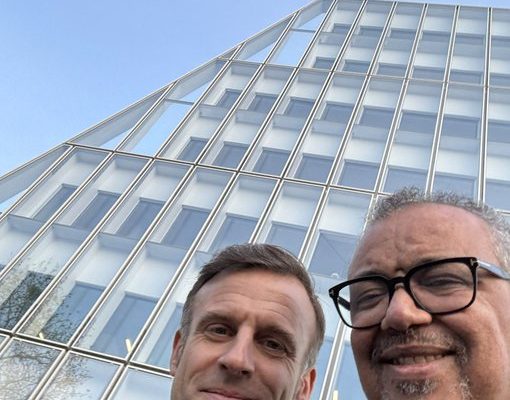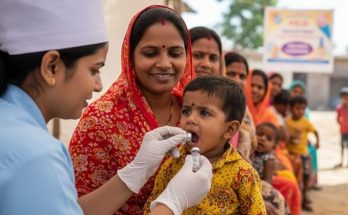WHO Academy in Lyon. Image credit: X/@DrTedros
The World Health Organization (WHO) Academy in Lyon, France, officially opened its doors Dec 17 with a high-profile inauguration ceremony.
The event was attended by WHO Director-General Dr Tedros Adhanom Ghebreyesus, French President H.E. Emmanuel Macron, alongside dozens of health ministers, international representatives, donors, and local French partners.
The WHO Academy is a revolutionary project which will contribute to a better trained health workforce around the world, through the most ambitious lifelong training programme ever designed in the field of public health. More concretely, through trainings delivered in Lyon and everywhere in the world on its online platform, it will give access to the critical skills and competencies as well as to the latest knowledge and know-how in terms of public health to health professionals, policy-makers, and WHO’s own workforce.
Thanks to partnerships built with the best academic and research institutes in public health around the globe, the WHO Academy intends to address identified weaknesses in health systems – the first of which being the growing global shortage of health and care workers, projected to reach 10 million by 2030, but also the widening gap in terms of access to the latest research and innovation. The majority of this shortfall will be felt in low- and middle-income countries, particularly in Africa. With the view to build and share access to the most advanced technology for health and care and research and development in the field of health, including AI, the Academy will bring additional capacity and efficiency directly to health systems.
Launched seven years ago, this pioneering initiative has been made possible through generous support from the Government of France, the Auvergne-Rhône-Alpes region, Lyon City and Métropole, and other global partners. The WHO Academy’s new state-of-the-art campus spans 11 000 square meters and includes: twenty-two training rooms, two distance-learning rooms, a simulation centre, an emergency operations centre, a TV recording studio, a modern auditorium and a library.
The Academy also has an online learning platform that democratizes access to world-class health education. This platform features free, cutting-edge courses on priority health topics, ensuring that professionals across the globe can access high-quality training, regardless of their location.
President Emmanuel Macron said: “Today we can be proud to open in the city of Lyon the doors of a new global institution, which will bring the best in terms of health training and innovation to the world. The latest tech and AI developments will be very powerful to make health care more accessible everywhere. This investment will benefit us all, because better trained health workers are absolutely critical to make our world safer, including to prevent and respond to future pandemics. I trust this strong partnership with WHO will demonstrate our trust in its capacity to guide our health policies across the globe and to coordinate our actions, to be always more efficient to serve our people on the ground.”
Dr Tedros Adhanom Ghebreyesus, WHO Director-General said: “WHO is known for producing world-class technical products – guidelines, norms, and standards – but translating these into real-world action has been hindered by a lack of institutionalized training. Often, our technical products sit unused on shelves or unread in inboxes. The WHO Academy will be game-changing, a first-of-its-kind global health learning centre that will equip health and care workers, policy-makers, and our own global workforce with the competencies and skills they need to transform health systems and deliver health for all.”
The shortage of health-care workers is one of the greatest challenges to global health. It has left millions without access to essential health-care services, such as immunization, maternal care, treatment for communicable diseases, and more.
Through the WHO Academy, thousands of health professionals will be trained each year. By 2028, the Academy aims to train 3 million health-care workers, including nurses, clinicians, and midwives, along with 900 senior decision-makers and 13 000 public health managers. The WHO Academy will produce 50 to 80 courses annually from 2025 to 2028, totalling approximately 260 new courses by 2028.
The WHO Academy represents a bold step forward in closing the global health workforce gap. By providing high-quality, accessible education and training to health professionals worldwide, the Academy will play a key role in strengthening health systems, improving service delivery, and advancing health equity.





